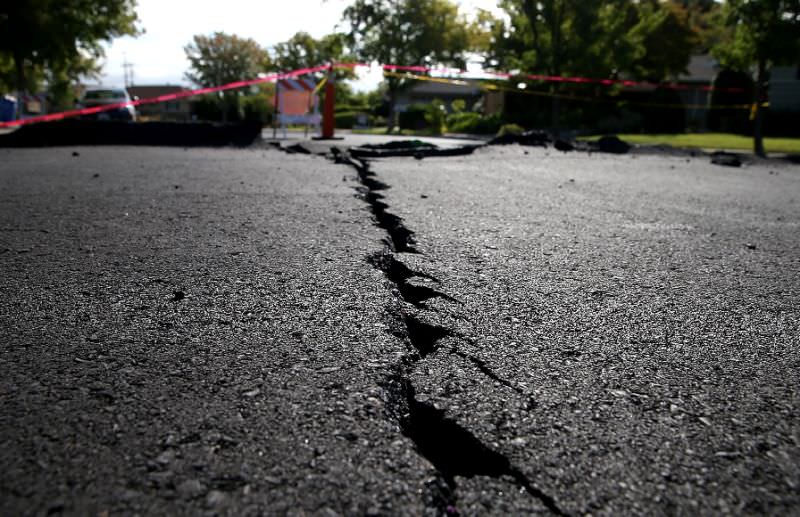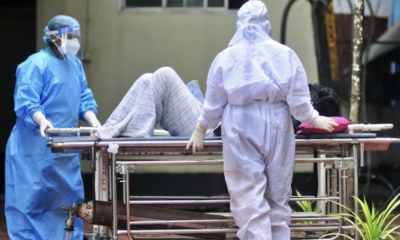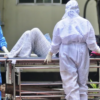Life
What will you do when it hits?
When an earthquake hit Bihar in 1934 flattening almost all major buildings in Bihar districts and many places in Calcutta, Mahatma Gandhi had said it was punishment for the sin of untouchability.
Well, the sins have definitely accumulated over the years and if the recent earthquakes in the last two years including the two recent ones in Myanmar and the Hindukush in Afghanistan and their tremors felt in West Bengal, Bihar, Delhi, NCR, Jammu and Kashmir, Punjab, Chandigarh and Haryana, are any indication to go by, we are helplessly waiting for something big, very big.
8 new cities and towns have been added to a government list of urban areas vulnerable to earthquakes of ‘very severe intensity’. In all, 81 new towns and cities were added to a list of areas prone to earthquakes, bringing the total to 107.
According to a report by IndiaSpend, a big Himalayan earthquake, more than 500 years overdue, is expected, although no one can predict when this might be.
After the devastating Nepal earthquake, BK Rastogi, director general of the Ahmadabad-based Institute of Seismological Research, told media, “An earthquake of the same magnitude is overdue. It may happen today or 50 years later- in the region of the Kashmir, Himachal, Punjab and Uttrakhand Himalayas. The seismic gaps have been identified in these regions.”
He added, “The accumulation of stress is going on everywhere. But where it will reach the elastic limit, we don’t know nor also when. But what we do know is that it is happening everywhere.”
Tectonic plates west of the Nepal earthquake are still locked and scientists fear this is another trigger waiting to go off. Stresses locked in this area could be released, potentially causing a massive quake.
When it comes, there could be not much in our hands as destruction will prevail, but we can surely take precautions and maximize the safety of our loved ones in such times. Here is a list of steps one could take.
Before it hits-
Firstly, always plan a meeting place outside house with your family, if chances of such calamity are there, as during the day most of them are out for work. Secondly, Most of the casualties and injuries occur due to the toppling of chimneys, partial building collapses, falling objects and debris, falling bricks, ceiling plaster, etc. While outside the house we don’t have much of a choice, we can surely position things better inside the house.
1. Fix to walls anything that might topple, like top-heavy shelves, appliances, and furniture. The hang heavy picture frames or mirrors, which most of our houses have, should not be positioned over the bed. Don’t hang plants in heavy pots that could swing free of hooks.
2. Bind your water heater to wall studs with metal plumbing tape to prevent broken pipes and fires.
3. Locate master switches and shutoff valves for all utilities and know how to turn them off.
4. Whenever such alerts are flashed on TV, keep within reach a flashlight; a portable radio, three-day supply of fresh water, ready-to-eat foods and adjustable wrench for turning off gas and water.
When an earthquake hits, the jolt shifts from a gentle movement to a violent one in seconds. Hence, it is crucial to find a place to save yourslf from the collapsing things (if any).
1. If indoors, DROP to the ground; take COVER by getting under a sturdy furniture covering your face and head with your arms and crouch. Try to stay away from windows or brick masonry (like fireplaces), bookcases, china cabinets, and mirrors.
2. If outdoors, there is nothing much you could do though the chances of you staying alive increases if you stay away from buildings, trees, and power lines.
3. If driving, it’s wise to move away from overpasses. You should stop slowly in a safe area stay inside your vehicle and listen to the radio for updates.
4. In a high rise building, don’t use the elevator at any cost.
After an earthquake is over, always expect a secondary shockwave. It is capable of doing additional damages that could have been prevented.
1. Check water, gas, and electric lines for damage. If any are damaged, shut off the valves. Check for the smell of gas. If you smell it, open all the windows and doors, leave immediately.
2. Stay away from beaches. Tsunamis sometimes hit after the ground has stopped shaking.
3. Don’t forget to clean up spilled medicines, bleaches, gasoline, and other flammable liquids.
4. Do not use the telephone except in an emergency.








































